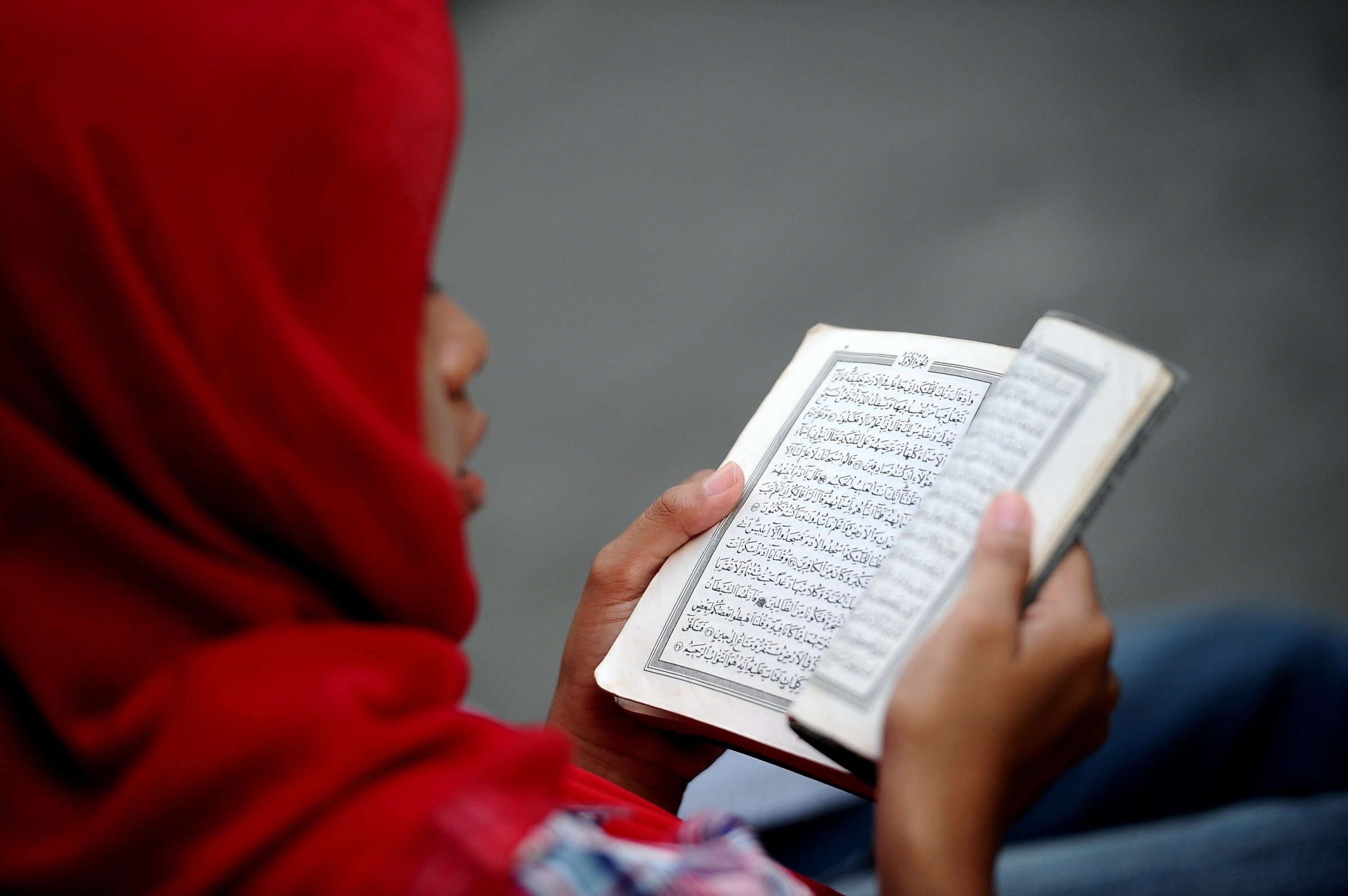
The holy month of Ramadan is a time of deep reflection for Muslims worldwide. Over the 30 days of Ramadan, Imam Sohaib Sultan of Princeton University will offer contemplative pieces on contemporary issues drawing from the wisdoms of the Qur’an – the sacred scripture that Muslims revere as the words of God and God’s final revelation to humanity. The Qur’an is at the heart of Muslim faith, ethics, and civilization. These short pieces are meant to inspire thought and conversation.
I’m often asked why many Muslim women cover their hair and dress apart. I used to reply by proclaiming the virtue of modesty. I would often receive a blank stare or a look of confusion. Slowly, I came to realize that modesty is, in fact, not only a lost virtue in our times but also a word that is understood differently by different people.
If we look at the Merriam-Webster dictionary, the first definition of modesty that comes up is “the quality of not being too proud or confident about yourself or your abilities.” All of the synonyms that go with modesty, such as “meekness” and “lowliness,” reinforce this definition. This understanding of modesty is why the American sage Maya Angelou (may God rest her soul) is quoted as saying: “I’m a religious woman. And I feel I have responsibility. I have no modesty at all. I’m even afraid of it – it’s a learned affectation and it’s just stuck on me like decals. Now I pray for humility because that comes from inside out.”
But, largely, when Muslims refer to modesty, this isn’t what they’re referring to. It is the second, and lesser known, definition that is at the heart of modesty’s virtue: “propriety in dress, speech, or conduct.” Propriety and goodly comportment are really what modesty as a virtue is all about. This virtue is universally proclaimed, to varying degrees, across faith traditions.
In Islam it takes on great importance because the Prophet Muhammad said, “every religion has a chief characteristic and the chief characteristic of Islam is modesty.” Even though we, as Muslims, have become obsessed with women’s modesty, modesty is a virtue for both men and women. In fact, the Prophet himself was described as being the epitome of modesty in his behavior with people. And, when the Qur’an tells believers to lower their lustful gazes and guard their chastity – important aspects of the modesty tradition – it begins by commanding this to men before women (24:30 – 31).
The Arabic word for modesty is hayaa. The interesting thing about this word is that it is linguistically related to the Arabic word for life (hayat). Muslim scholars and sages have taken from this that there is an intimate connection between the two terms. Modesty, it is said, is the virtue that gives spiritual life to the soul.
This connection between spiritual life and modesty exists because the virtue is not just about outward appearances; rather, it is first and foremost about the inward state of having modesty before God – meaning an awareness of divine presence everywhere and at all times that leads to propriety within oneself and in one’s most private moments.
Outward modesty means behaving in a way that maintains one’s own self-respect and the respect of others, whether in dress, speech or behavior. Inward modesty means shying away from any character or quality that is offensive to God. The outward is a reminder of the inward, and the inward is essential to the outward.
More Must-Reads from TIME
- Cybersecurity Experts Are Sounding the Alarm on DOGE
- Meet the 2025 Women of the Year
- The Harsh Truth About Disability Inclusion
- Why Do More Young Adults Have Cancer?
- Colman Domingo Leads With Radical Love
- How to Get Better at Doing Things Alone
- Michelle Zauner Stares Down the Darkness
Write to Sohaib N. Sultan at ssultan@princeton.edu